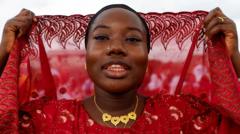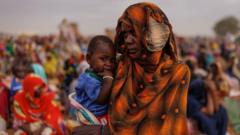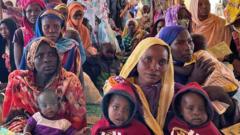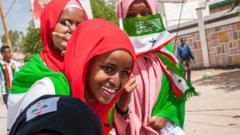The withdrawal of French troops marks a significant change in West Africa's military landscape, as former colonial ties weaken and countries strive for greater autonomy.
French Troops Set to Withdraw from Ivory Coast as Military Influence Diminishes

French Troops Set to Withdraw from Ivory Coast as Military Influence Diminishes
Ivory Coast's President Ouattara announces the end of French military presence, signaling a shift in regional power dynamics.
Ivory Coast has officially confirmed that French troops will be leaving the nation, signaling a substantial decrease in military influence from the former colonial power. In a recent address, President Alassane Ouattara emphasized that this decision is a testament to the modernization and increased capability of the nation’s armed forces. Meanwhile, neighboring Senegal has also declared that all French military bases will be dismantled by the end of 2025, further contributing to this shifting geopolitical landscape.
Currently, around 600 French troops are based in Ivory Coast, alongside 350 personnel in Senegal. This withdrawal comes in the backdrop of France’s exit from military outposts in Mali, Burkina Faso, and Niger, a move prompted by military coups and rising anti-French sentiment across the region. Notably, Chad recently terminated its defense cooperation pact with France, highlighting a trend among West African nations seeking to redefine their security relationships.
In comments made by Senegalese President Bassirou Dioumaye Faye, there is a clear shift towards establishing a new doctrine for defense cooperation, which entails the elimination of foreign military presence by 2025. Elected on a platform of national sovereignty, Faye's administration aims to reduce dependence on external military support.
Historically, Ivory Coast was celebrated for its stability, marked by ethnic harmony and economic strength as the world’s largest exporter of cocoa. However, civil strife beginning in 2002 disrupted this stability, leading to a complex cycle of peace deals and violence as the nation worked toward reconciliation. Today, despite challenges, Ivory Coast maintains a higher income level compared to many of its regional counterparts, emphasizing both resilience and the potential for a brighter future.



















